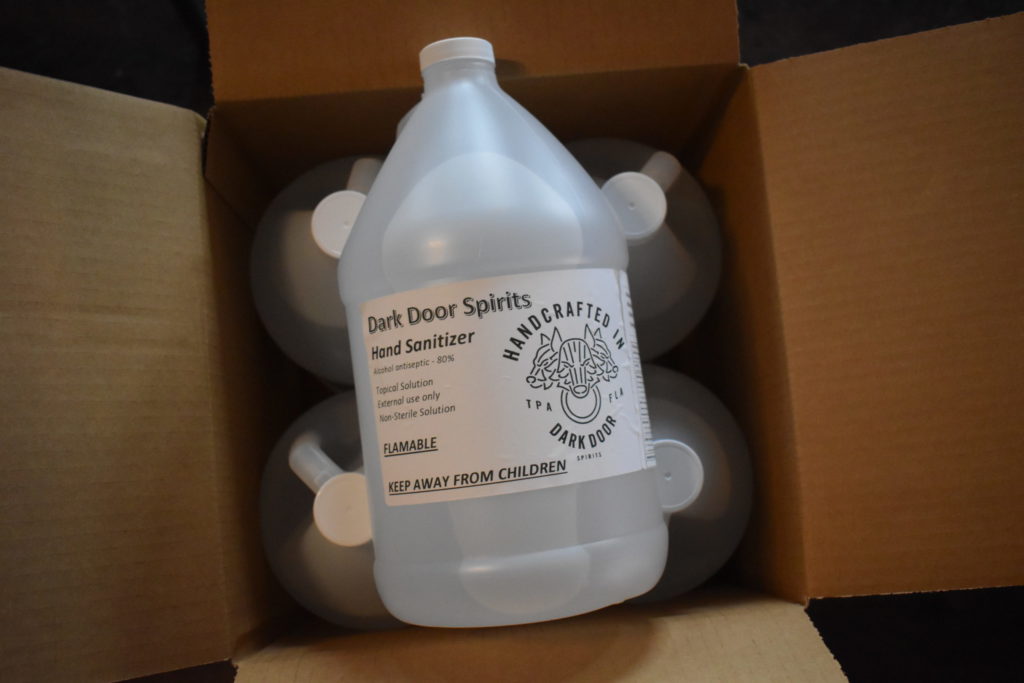Federal and State Requirements for Florida Manufacturers of Hand Sanitizers

Temporary Relief from Federal Requirements for Nonbeverage Alcohol
To encourage the nation’s alcohol manufacturers to produce hand sanitizer and ethanol for use in hand sanitizer during the COVID-19 pandemic, the federal Alcohol and Tobacco Tax and Trade Bureau (the TTB) issued Public Guidance 2020-1 and 2020-1A. The TTB guidance continues through December 31, 2020.
Under the TTB guidance, the following relief is granted to licensed distilled spirits plants (DSPs) through the end of 2020:
- DSPs are not required to obtain additional permits or bonds to manufacturer hand sanitizer or to supply ethanol for use in manufacturing hand sanitizer.
- Nonbeverage products made with ethyl alcohol (ethanol), including hand sanitizer, are not subject to federal excise tax.
- DSPs are not required to obtain formula approval before making hand sanitizer products according to FDA guidance.
- DSPs are not required to obtain TTB authorization prior to transferring denatured or undenatured ethanol from another domestic DSP (i.e., transfer in bond).
- DSPs may sell denatured or undenatured ethanol to state and local governments and to hospitals, blood banks, pathological laboratories, non-profit clinics, and qualifying educational institution for their own nonbeverage purpose use and not for resale.
In each case, the DSP is required to keep sufficient records of its production, transfer, and sale of denatured or undenatured ethanol.
Federal Requirements for Nonbeverage Alcohol During Ordinary Times
Unless TTB Public Guidance 2020-1A is extended, DSPs will again be required to comply with ordinary laws and regulations concerning nonbeverage alcohol beginning January 1, 2021.
Generally, all nonbeverage alcohol products, including hand sanitizer, require formula approval by the TTB’s Nonbeverage Products Laboratory. The NPL goal is to confirm that products are unfit for beverage purposes. Formula approval is requested through the TTB’s Formula Online system.
In some cases, formula approval requires submission of a product sample (2 fluid ounces of a liquid product, or 100 grams for a solid product). A sample is not required provided that the product meets established TTB guidelines for products unfit for beverage use. However, a sample is always required for certain products, including products that contain mitigating ingredients such as sugar, high fructose corn syrup, glycerin or juices.
Generally, DSPs must include all alcohol produced and sold in its determination of and payment of federal excise taxes. However, DSPs may claim a tax credit for alcohol used in formula-approved nonbeverage products (sometimes called drawback alcohol). The drawback alcohol credit must be claimed by filing TTB Form 5620.8 (Claim – Alcohol, Tobacco and Firearms Taxes) and TTB Form 5154.2 (Supporting Data for Nonbeverage Drawback Claims).
Florida Requirements for Nonbeverage Alcohol
Alcohol used in nonbeverage products, including hand sanitizer, is not subject to Florida’s Beverage Law or excise tax. See Florida Statutes s. 561.02.
Nonbeverage alcohol to be used in food products is subject to regulation under the Florida food Safety Act by the Florida Department of Agriculture and Consumer Services. See Making & Selling Cocktail Bitters in Florida for more information on federal and Florida regulation of nonbeverage alcohol used in food products.
Florida does not regulate nonbeverage alcohol used in non-food products like hand sanitizer.
Do you have questions about the regulations that apply to manufacturing ethanol-based hand sanitizer? We’d love to discuss it with you. Contact us at contact@brewerlong.com to schedule a consultation with a beverage attorney.
Because we’re attorneys: This blog post is provided on an “as is” and “as available” basis as of the date of publishing. We disclaim any duty to update or correct any information contained in this blog post, including errors, even if we are notified about them. To the fullest extent permitted by law, we disclaim all representations or warranties of any kind, express or implied with respect to the information contained in this blog post, including, but not limited to, warranties of merchantability, fitness for a particular purpose, title, non-infringement, accuracy, completeness, and timeliness. We will not be liable for damages of any kind arising from or in connection with your use of or reliance on this blog post, including, but not limited to, direct, indirect, incidental, consequential, and punitive damages. You agree to use this blog post at your own risk. Regarding your particular circumstances, we recommend that you consult your own legal counsel–hopefully BrewerLong.

